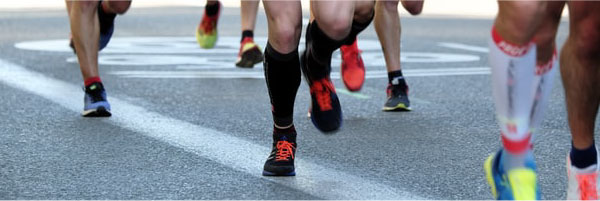The Best Compression Socks for Pregnancy: Comfort and Relief
Pregnancy is an exciting time, but it can also bring about physical discomforts that can make daily activities more challenging. One of the most common issues that pregnant women face is swelling in the legs, feet, and ankles, often known as edema. Fortunately, compression socks are a simple yet effective solution that can help alleviate many of these discomforts, improving overall well-being and making the pregnancy journey a little more comfortable.
How Compression Socks Work During Pregnancy
Compression socks are designed to apply gentle pressure to the legs and feet, encouraging better blood circulation. As your baby grows, the body undergoes significant changes, and the added weight can put additional strain on your circulatory system. This can result in poor circulation, leading to swelling, discomfort, and sometimes even varicose veins.
Compression socks work by applying graduated pressure, which means they are tighter at the ankle and gradually become looser toward the knee. This design promotes the upward flow of blood, helping to reduce the pooling of fluids in the lower legs and preventing swelling. In addition, improved circulation helps to prevent the formation of varicose veins and ease the discomfort caused by poor blood flow.
Reducing Swelling and Edema
Swelling in the feet, ankles, and legs is one of the most common and uncomfortable side effects of pregnancy. Hormonal changes, increased blood volume, and the pressure of the growing uterus on the veins can contribute to fluid buildup. Compression socks help to reduce this swelling by promoting proper fluid movement and preventing the accumulation of excess fluids in the lower limbs.
By reducing swelling, compression socks can help relieve the feeling of heaviness and fatigue that many pregnant women experience in their legs. This makes it easier to go about daily activities, whether it’s standing, walking, or even sitting for long periods of time.
Relieving Discomfort and Fatigue
Pregnancy can be physically demanding, and many women find that their legs and feet get tired more easily. Swollen feet and aching legs can make it difficult to focus on anything other than the discomfort. Compression socks offer relief by providing targeted support to the muscles and veins in the legs.
By improving blood circulation and reducing the build-up of fluids, compression socks help alleviate feelings of tiredness and discomfort. Many women report that wearing compression socks throughout the day reduces the heaviness in their legs, helping them feel lighter and more energized.
Preventing Varicose Veins
Varicose veins, which are swollen, twisted veins that often appear on the legs and feet, are a common concern during pregnancy. The increased blood volume and hormonal changes can weaken the walls of blood vessels, causing them to bulge. While varicose veins may be inevitable for some, compression socks can help prevent or minimize them by supporting the veins and improving circulation.
By enhancing blood flow and reducing swelling, compression socks help prevent the blood from pooling in the veins, which is one of the main causes of varicose veins. Regular use of compression socks can reduce the risk of developing these veins and may even ease the discomfort caused by existing ones.
Supporting Overall Comfort during Pregnancy
Pregnancy is a time of major changes in the body, and comfort is often hard to come by. Compression socks not only help with circulation and swelling but also provide support for the muscles and joints. For pregnant women experiencing lower back pain or discomfort from standing for long periods, compression socks can provide additional support to the legs and lower body, reducing strain and promoting comfort.
Additionally, many women find that compression socks are beneficial during travel, particularly long car rides or flights, as they help keep circulation flowing and reduce the risk of developing blood clots, a concern for pregnant women during extended periods of immobility.
When to Wear Compression Socks During Pregnancy
Compression socks are most beneficial during the second and third trimesters of pregnancy when swelling and discomfort are typically at their peak. However, if you’re experiencing significant swelling or leg pain earlier in your pregnancy, compression socks can be worn at any stage to provide relief.
It’s important to consult with your doctor before starting to wear compression socks, especially if you have any pre-existing conditions like high blood pressure or varicose veins, as they can advise you on the appropriate compression level and duration.
Choosing the Right Compression Socks
When selecting compression socks for pregnancy, it’s essential to choose the right level of compression. The ideal compression level for pregnancy typically ranges from 15-20 mmHg. This provides gentle yet effective pressure to improve circulation without being too tight or uncomfortable.
Additionally, look for compression socks that are made from breathable, soft materials to ensure comfort throughout the day. Choose a design that fits well and doesn’t pinch or roll down, as this will make wearing them for extended periods easier. Some compression socks are designed with extra cushioning around the arch and heel, which can further enhance comfort.
Conclusion
Compression socks are a practical and effective way to manage some of the common discomforts associated with pregnancy. From reducing swelling and fatigue to preventing varicose veins and providing overall comfort, these socks are a must-have for many expectant mothers. By improving circulation and offering support, they help pregnant women feel better, more energized, and ready to take on the day.
If you’re looking for a simple way to improve your well-being during pregnancy, give compression socks a try. With the right pair, you can enjoy a more comfortable, healthier pregnancy experience.



